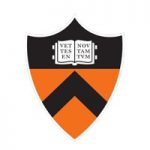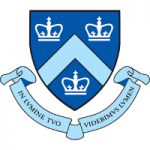项目介绍
COURSES:
Students are expected to complete twelve graduate seminars during the first two years of study in addition to all necessary language classes. The Director of Graduate Studies will determine the course load in each semester in consultation with the student and their advisor.
The Department encourages students to do part of their coursework in other departments as appropriate and pertinent to their fields of study. Students in East Asian history are expected to take History 500 (Introduction to the Professional Study of History) in their first semester. Students in literature are encouraged to take Comparative Literature 521 (Introduction to Comparative Literature). Students in the social and cultural study of contemporary East Asia are encouraged to take an introductory course specific to their discipline, for example, Anthropology 501 and 502 (Proseminar in Anthropology)and/or 503A or B (Co-seminar).
In addition to the official course offerings, students may ask individual faculty for an independent reading course.
While doing graduate coursework, students are expected to write final research papers (or the equivalent thereof) in each of their courses. These papers must be written in English. At the end of the first and second academic year, students should deposit one sample of their best written work in their departmental file.
Students can take courses at neighboring institutions like Columbia University, New York University, Rutgers University, and University of Pennsylvania. Princeton is also part of the Exchange Scholar Program(link is external), a student-exchange consortium of research universities that allows students to study for a semester or a year at another participating institution. LANGUAGE(S):
Every student in the Department is required to demonstrate competence in at least two foreign languages: one in the East Asian language appropriate to the field of specialization (Chinese, Japanese, or Korean), the other in a European language, typically French or German. Students specializing in the pre-modern or early modern periods must be proficient in both the classical and the modern language of their field of specialization. In addition, students in Chinese studies are required to take at least two years of modern Japanese and are advised to take EAS 563-564 (Readings in Japanese Academic Style).Depending on the field of specialization, individual faculty may impose additional language requirements.
The European and (for students in Chinese studies) Japanese language requirements must be fulfilled prior to the General Examination. These and any other language requirements may be fulfilled through regular courses during the academic year and/or through intensive summer programs that typically provide the equivalent of a full year of language study, for which students may apply for additional Princeton (or outside) funding dedicated to this purpose. Princeton maintains its own summer language programs in Beijing, China(link is external)(link is external) and Kanazawa (Ishikawa prefecture), Japan(link is external)(link is external). Students may also take examinations to place out of their additional language requirements. These examinations must be taken before the General Examination.
Upon arrival at Princeton, new students are evaluated in the language of their field of specialization and, if necessary, placed into appropriate language courses. Foreign students are required to take an examination to demonstrate adequate mastery of the English language and, in some cases, they may be asked to take a dedicated English language course.PRE-GENERALS REQUIREMENT(S):
The department has arranged with the Department of Comparative Literature for a minor in comparative literature. This involves choosing comparative literature as the third field in addition to other requirements that can be explained by the Director of Graduate Studies in this department or in the Department of Comparative Literature.GENERAL EXAM:
The General Examination consists of both written and oral sections and covers three distinct fields of study, one major and two minors. It is designed to test the breadth and depth of the student’s knowledge in her/his major field—the field of specialization—and competence in the minor fields adequate to teach at the undergraduate level.
Students can take the exam only after they have completed two years of coursework, all language requirements, and the University’s one-year residency requirement. The General Examination can be scheduled in October or January of the third year of study.
In preparation for the exam, students need to decide their three fields and identify the appropriate faculty members to serve on the examination committee in consultation with the student’s advisor and the Director of Graduate Studies. Typically, the examiner of the major field will also serve as the student’s dissertation advisor. In choosing the minors, students must include either a different discipline or a cultural-linguistic area different from the major field. These may include disciplines outside the EAS Department, cultural areas other than East Asia, or methodological/ theoretical fields. One field can be jointly supervised by two faculty members.
It is strongly recommended that students actively keep in regular contact with the supervisors of their exam a year before the examination. These meetings are necessary for the student to obtain a clear idea about the scope of the individual fields and to design a reading list in consultation with each field’s examiner.
It is normally expected that all three fields are jointly examined during a period of a specified period of consecutive days in the months of October, January, or May. The written exam is in the take-home format. The three separate written exams are then followed by a joint oral exam of about two hours with all three examiners.
There are four possible outcomes of the General Examination: 1) pass and advance to doctoral candidacy; 2) fail and retake the Examination once; 3) pass, but at a low level and be advised to accept a terminal M.A.; 4) fail a second time and receive the terminal M.A. If in the course of the examination doubts are raised about the student’s ability to pursue doctoral research, the Director of Graduate Studies may seek the approval of the entire Department before a student may advance to candidacy.
The student must pass each of the three field examinations. Should a student fail the examinations, examiners will provide the student with feedback and clear guidelines for improvement before the student re-takes the exam. A student who fails one or more of the examinations must retake those fields within one year, but not later than the end of the sixth semester of study. By Graduate School rule, no student can enter a seventh semester of study without having passed all portions of the General Examination, and failure a second time automatically results in termination of enrollment the first of the month following the date in which the second attempt was made.QUALIFYING FOR THE M.A.:
The Master of Arts (M.A.) degree is normally an incidental degree on the way to full Ph.D. candidacy. It may be earned after a student has successfully completed all pre-general examination coursework (normally, at least twelve seminars); produced research papers using original sources in Chinese, Japanese, or Korean; and fulfilled departmental language requirements. It may also be awarded to students who, for various reasons, leave the Ph.D. program, provided that these requirements have been met.TEACHING:
The University offers graduate students the opportunity to gather teaching experience by leading discussion sections (“preceptorials”) in undergraduate lecture courses. The Department requires all Ph.D. students to have served at least once as a preceptor before being able to schedule the Final Public Oral Examination. Students are eligible to precept after having successfully completed the general examination. Preceptors are remunerated in accordance with University policy.
Students are encouraged to precept beyond the one-course requirement and should actively seek out precepting opportunities both within and beyond the department. This course may be within or outside the student’s disciplinary or linguistic field of specialization. In exceptional circumstances, the Director of Graduate Studies may waive the teaching requirement.
Before being able to precept, students must complete a two-day training session at the University’s McGraw Center for Teaching and Learning(link is external)(link is external).
Students can also apply to team-teach a new undergraduate course with a member of the EAS faculty. Applications must be approved by the Department Chair and the Director of Graduate Studies and should be sent to the Collaborative Humanities(link is external)(link is external) initiative of the Humanities Council(link is external)(link is external).DISSERTATION AND FPO:
Prospectus
After the successful completion of coursework, language requirements, and General Examination, students, now Ph.D. candidates, focus on their dissertation research. The first step is the development of a Dissertation Prospectus, which must be approved by a committee of advisors in the form of a written statement and a public oral defense. The committee includes the primary advisor and two other faculty from within or outside the Department who may or may not have served on the student’s General Examination committee.
While there is no set format for the prospectus paper, it consists of a synthetic statement of the dissertation research that candidates develop in close consultation with their primary advisor. On average, it is expected to be a 10 to 15 page-long paper, which includes a clearly defined topic of research, an account of the state of the field and how the proposed research relates to it, an outline of the methodology employed, an account of the sources to be explored, a specific research plan and timeline. The paper may include a preliminary chapter outline. In addition to the paper, candidates should add a substantial bibliography of primary and secondary sources pertinent to the project.
The dissertation prospectus paper must be submitted to the Department at least one week before the oral presentation and will be distributed to the Department faculty and graduate students. At the prospectus defense, the candidate is given about twenty minutes to introduce the prospectus; this will be followed by faculty comments and an open-floor discussion.
The prospectus defense is typically planned according to the following schedule:
General Examination Date Prospectus Presentation
October of 3rd year No later than January of 3rd year
January of 3rd year No later than May of 3rd year
It is the responsibility of the student to observe this schedule. If candidates do not successfully complete the general examination and the dissertation prospectus defense by the end of the third academic year, their reenrollment will be deferred until a successful prospectus defense. As per Graduate School rule, no student should be readmitted to a fourth year (seventh term) of graduate study without having successfully completed the general examination.
The possible outcomes of the prospectus presentation are: 1) accepted; 2) accepted with revisions; 3) rejected. If the prospectus is accepted with revisions, the student has four weeks to present a revised version to the committee, which will decide on its acceptance without a second public presentation. If the initial prospectus is rejected, a new date for another public presentation must be scheduled in consultation with the Director of Graduate Studies. A second rejection results in withdrawal from the University with the M.A.
Dissertation Write-up Support
Students who have exhausted their five years of University funding and do not hold other outside fellowships may apply for write-up fellowships from the East Asian Studies Program. The awarding of such fellowships is contingent on the demonstrated progress—typically chapter drafts—toward the completion of the dissertation. Fellowships are given for one semester and are renewable for a maximum of one more semester.
The Final Public Oral Examination
The Final Public Oral Examination (FPO) is a final defense of the dissertation and of the student’s competence in their field of study.
The dissertation should represent an original and significant contribution to knowledge in the field of specialization. It should be grounded in original source material and demonstrate the candidate’s capacity to pursue independent research in their field and to effectively conceptualize their findings. The scope and length of the dissertation should be such that a finished project can be completed within three years of work. The dissertation must be written and submitted in English.
While writing the dissertation, all students are expected to stay in regular contact with their primary dissertation advisor, regardless of whether they are in residence or elsewhere.
After the main advisor has agreed that the completed dissertation can be moved forward to the FPO, the Director of Graduate Studies, in consultation with the advisor and the student, assigns two principal readers to write a report to the Graduate School on the quality of the dissertation. Candidates are urged to consult with their advisor and the Director of Graduate Studies well in advance to set a tentative date for their FPO as well as to identify the two principal readers. The advisor cannot act as reader, but for the benefit of the Department and the student, they will submit a similar report, too. External readers outside the Princeton community must be of comparable rank in a relevant branch of the scholarly community. External readers or examiners must be approved by the Graduate School prior to the submission of the FPO application. Students are strongly encouraged to work closely and in regular communication with the two readers, ideally one year prior to the FPO.
The composition of the dissertation defense committee can vary, but it is comprised of at least three principal examiners, all of them normally members of the Princeton faculty at the rank of assistant professor or higher, at least two of whom have not been principal readers of the dissertation. At least one of the examiners must be from the student’s home department. The two readers must submit their reports to the Department no later than two weeks before the FPO. If both readers agree that the dissertation is acceptable, the student may proceed to the Final Public Oral Examination. If one of the readers deems the dissertation unacceptable, the Director of Graduate Studies will appoint a third reader and a final determination will be made in discussions among the advisor, the readers, and the Director of Graduate Studies.
Candidates must submit two unbound copies of the complete dissertation to the Department eight weeks before the FPO. The dissertation must include the entire text of the dissertation, with footnotes and bibliography, and it must be thoroughly edited. After submitting the dissertation to the Department, only minor changes (correction of occasional typos, etc.) are allowed. Thereafter, in accordance with Graduate School rules, the dissertation must be submitted to the Department in its bound and final form no later than two weeks before the FPO.
At the FPO, the student and the examiners should be present in person. In extraordinary circumstances, a department may request that the Graduate School approve virtual, video-conferenced participation of an examiner, but in no case may there be fewer than two examiners who participate in person. Acting on the advice of the examiners, the department determines whether or not the candidate has passed the examinationThe department does not offer to hold Final Public Oral Examinations in the months of June, July, and August.
联系方式
电话: 609-258-3000相关项目推荐
KD博士实时收录全球顶尖院校的博士项目,总有一个项目等着你!






